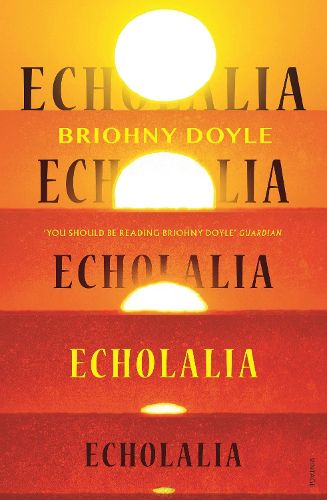Readings Newsletter
Become a Readings Member to make your shopping experience even easier.
Sign in or sign up for free!
You’re not far away from qualifying for FREE standard shipping within Australia
You’ve qualified for FREE standard shipping within Australia
The cart is loading…






What could drive a mother to do the unthinkable?
Before: Emma Cormac married into a perfect life but now she’s barely coping. Inside a brand new, palatial home, her three young children need more than she can give. Clem, a wilful four year old, is intent on mimicking her grandmother; the formidable matriarch Pat Cormac. Arthur is almost three and still won’t speak. At least baby Robbie is perfect. He’s the future of the family. So why can’t Emma hold him without wanting to scream?
Beyond their gleaming windows, a lake vista is evaporating. The birds have mostly disappeared, too. All over Shorehaven, the Cormac family buys up land to develop into cheap housing for people they openly scorn.
After: The summers have grown even fiercer and the Cormac name doesn’t mean what it used to. Arthur has taken it abroad, far from a family unable to understand him. Clem is a young artist who turns obsessively to the same dark subject. Pat doesn’t even know what legacy means now. Not since the ground started sinking beneath her.
Meanwhile, a nameless woman has been released from state care. She sticks to her twelve-step program, recites her affirmations, works one day at a time on a humble life devoid of ambition or redemption. How can she have an after when baby Robbie doesn’t?
$9.00 standard shipping within Australia
FREE standard shipping within Australia for orders over $100.00
Express & International shipping calculated at checkout
Stock availability can be subject to change without notice. We recommend calling the shop or contacting our online team to check availability of low stock items. Please see our Shopping Online page for more details.
What could drive a mother to do the unthinkable?
Before: Emma Cormac married into a perfect life but now she’s barely coping. Inside a brand new, palatial home, her three young children need more than she can give. Clem, a wilful four year old, is intent on mimicking her grandmother; the formidable matriarch Pat Cormac. Arthur is almost three and still won’t speak. At least baby Robbie is perfect. He’s the future of the family. So why can’t Emma hold him without wanting to scream?
Beyond their gleaming windows, a lake vista is evaporating. The birds have mostly disappeared, too. All over Shorehaven, the Cormac family buys up land to develop into cheap housing for people they openly scorn.
After: The summers have grown even fiercer and the Cormac name doesn’t mean what it used to. Arthur has taken it abroad, far from a family unable to understand him. Clem is a young artist who turns obsessively to the same dark subject. Pat doesn’t even know what legacy means now. Not since the ground started sinking beneath her.
Meanwhile, a nameless woman has been released from state care. She sticks to her twelve-step program, recites her affirmations, works one day at a time on a humble life devoid of ambition or redemption. How can she have an after when baby Robbie doesn’t?
While Briohny Doyle’s second novel Echolalia is less overtly end-of-days than her first (The Island Will Sink), it still carries a sense of desolation that speaks to Doyle’s preoccupations with domestic unrest and climate catastrophe. In the oppressive morning heat, amid piles of trash and debris, a child’s body lies still, small, and alone. Before: the signs of his mother’s obvious post-natal depression are dismissed by her family. After: she carries her shame and guilt alone, forcefully separated from her two other children. Echolalia is written like a compelling domestic thriller but acts as an unsparing indictment on the lack of support provided to women experiencing trauma, post-natal depression and psychosis. As we follow Emma through the endlessly repeating frames of her time before and time after, Doyle expertly controls the novel’s various tensions.
Emma is a fascinating tragic character, small in nature and body, made powerless by the weight of her trauma and the pressure to conform to the social standards set by her wealthy husband and his domineering family. Her abject failure as a mother makes her socially repulsive, but Doyle probes at the hypocrisy inherent in this response – that society is willing to blame the mother if she fails her child, but not to ensure that she is supported in its care.
Towards the end of the book, Emma’s daughter Clem, now an adult, exhibits a series of artworks she calls Echolalia ‘because the drawings are repetitions’. Clem explains: ‘The repeated thing is the landscape but also the violence. Each image depicts a place from which something was taken, rendering the scenes partial and scarred. The violence isn’t obvious. You can only see it by training your eye.’ Doyle may well be referring to her own work here, as Echolalia speaks to violence on an intimate, cultural and environmental level, exploring the imprint violence leaves on people and our surroundings, as much as what it takes from us. Echolalia is an accomplished, at times provocative, piece of fiction.
See what the Readings’ team have to say on the blog, discover related events and podcast episodes.
From the hopeful to the disturbing, these novels explore where the climate crisis might be leading us.